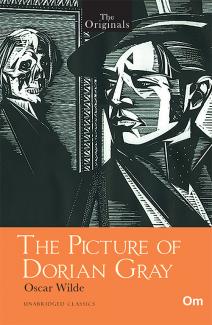THE ORIGINALS THE PICTURE OF DORIAN GRAY (UNABRIDGED CLASSICS)
Born on 16 October 1854, Oscar Wilde was a famous Irish poet and playwright. Part of a family of intellectuals, he was educated at the most prestigious colleges in Great Britain Trinity College, University of Dublin and Magdalen College, University of Oxford. During his years in university, he was drawn to Aestheticism, the art movement prevalent in late 19th century. He wrote essays, propagated ideas as a lecturer and also wrote the famous novel The Picture of Dorian Gray, which he vehemently defended using the concept of making art for art's sake. His aesthetic sensibilities mixed with his wit were apparent in notable plays such as The Importance of Being Earnest and Lady Windermere's Fan, and established him as a successful playwright. However, Wilde had a harrowing personal life because of his homosexuality. He was prosecuted and imprisoned in 1895 for two years. The idea of homosexuality in his novel The Picture of Dorian Gray was used against him to strengthen the case. Upon his release, he left for France, never to return to England. His health declined after his release from prison and he died of meningitis in 1900, aged 46. ... Read more Read less
The books that the world calls immoral are books that show the world its own shame. The Picture of Dorian Gray, the only novel by Oscar Wilde is also his most famous work. First published in Lippincott’s Monthly Magazine in 1890, the novel was recognised as a masterpiece decades later. Initially, it garnered negative criticism due to the undercurrents of homosexuality which hurt Victorian sensibility. In his characteristic witty fashion, Wilde conveys brilliantly the relationship between art, life and morality. Dorian Gray, a disarmingly good-looking young man, marvels at his own portrait and is resentful of the idea of the portrait remaining beautiful while he is destined to age. Thus, he makes a Faustian wish to remain young and retain his physical beauty forever whereas his portrait is to be marked with age and his moral degradation. Oscar Wilde notably defended The Picture of Dorian Gray by seeking the artist’s right to make ‘art for art’s sake’, a concept famous during Aestheticism in the latter half of the 19th century. The Picture of Dorian Gray remains influential even in the 21st century. ... Read more Read less











